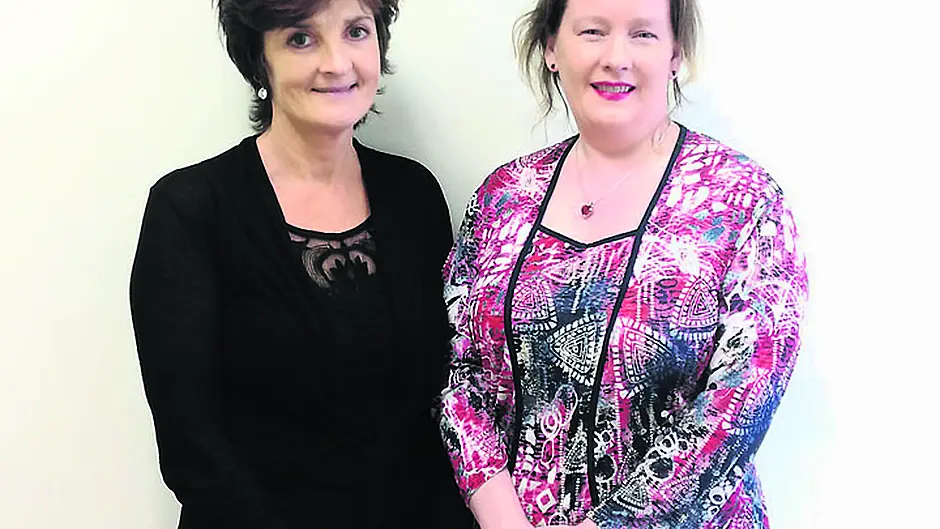Community groups across West Cork are partnering with the HSE to help create a ‘suicide safer' community within the region, writes Aisling Meath
Community groups across West Cork are partnering with the HSE to help create a ‘suicide safer’ community within the region, writes Aisling Meath
SINCE 2007 the HSE has facilitated a series of free-of-charge workshops in suicide prevention training, in conjunction with their community partners in the Cork and Kerry area.
Since then over 15,000 people have attended these Safetalk workshops and there will be another opportunity to avail of this training in Skibbereen, Goleen, Bantry, Dunmanway, Bandon and Castletownbere during the month of October.
‘We really appreciate the support of our local partners without whom we couldn’t make this happen’ said Bridin Ashe, community worker with the HSE who is co-ordinating the event in Bantry.
‘I have attended the Safetalk workshop myself and I would highly recommend it to anyone who is interested in learning tools to help prevent suicide in their local area.’ she said.
The HSE initiative will be hosted by its community partners – Skibbereen Family Community Resource Centre; Goleen District Community Council; Dunmanway Family Resource Centre; Bantry Bay Lions; The Caha Centre and Bandon Rotary Club – and will provide an ‘alertness training’ programme in order to empower and prepare participants to be alert and identify people with thoughts of suicide.
Community organisations in West Cork and beyond are united in sending a message out to the general public that there is always hope and help, somebody at hand to listen and they are never more than a phone call away, so ask for help – it is available.
Whether a person chooses to talk to a friend, visit their GP, talk to the Samaritans or Pieta House – there is always help and support available and much credit goes to the many volunteers involved for their time and Trojan work.
‘Together with our community partners we want to emphasise the message of hope and support,’ said Helena Cogan, HSE South resource officer for suicide prevention in the Cork and Kerry region. ‘Safetalk is open to anybody over 18 who feels that they might like to play a role in suicide prevention within the community.
‘Participants at the workshops learn the four basic steps – Tell, Ask, Listen and Keep Safe – in order to recognise people with suicidal thoughts and to connect them to support systems to help keep themselves safe,’ Helena told the Southern Star. ‘Talking about your feelings and staying connected to others is really important.’
A certified trainer in the Safetalk model, Helena will be facilitating workshops throughout West Cork as will another certified trainer Jason Sheehan of the West Cork Travellers Association.
Developed by LivingWorks in Canada, Safetalks has been successfully delivering suicide intervention skills programmes to communities in over 20 countries around the world. It started in 1982 when a group of volunteers working with the Canadian Mental Health Association sought to address the lack of effective suicide intervention skills among community workers and clinical professionals at that time.
Richard Ramsey, a social work professor, Dr. Brian Tanney, psychology professor and Rodger Tierney social work professor, joined forces and set up LivingWorks in Calgary, Alberta. In 2000 LivingWorks became the primary provider of intervention training for the US army and in 2003 held the first suicidal intervention-training programme in Iraq. LivingWorks has gone on to develop a number of tailored workshops within communities as well as workshops for trainers.
One of its core beliefs is that suicide is a community problem, and also that it can be prevented.
The Safetalk workshop is offered to anyone over the age of 18 in Ireland and requires no formal training or prior experience in suicide prevention.
The free training session lasts for a half-day and has been attended by students, teachers, first responders, community workers, athletes, police, military and people from all walks of life.
The workshop includes a presentation by a certified trainer and the use of audiovisual materials. A vital component is the provision of access to support networks through relevant community organisations and groups.
People who are interested in attending any of the workshops in West Cork can make contact directly with the local hosts for their preferred area.
The HSE has also been encouraging people to take positive steps in managing their mental health. Their campaign ‘#Little things make a difference’ encourages people to eat well, exercise regularly, cut down on alcohol, and get good sleep.
These good lifestyle habits all contribute to maintaining positive wellbeing and being better able to cope during times of emotional stress.
As well as an abundance of good food and fresh air we are fortunate in West Cork to have a network within the community supporting those among us who may be going through difficult times.
Upcoming Safetalk
workshops
Goleen: Monday, October 2nd, 7pm to 10pm. Goleen & District Community Council. Contact Bernard at 087-9632281 or [email protected].
Skibbereen: Tuesday, October 3rd, 10am to 1pm. Skibbereen Community and Family Resource Centre. Contact Helena at 028-23572 (Mon to Thurs) or [email protected]
Dunmanway: Tuesday, October 10th, 7pm to 10pm. Dunmanway Family Resource Centre. Contact 023 88 56818 or [email protected].
Bantry: Wednesday, October 11th, 7pm to 10pm. Bantry Bay Lions. Contact: Nora at [email protected]; Brídín at 086-7872273 or [email protected]
Castletownbere: Thursday, October 12th, 7pm to 10pm. The Caha Centre. Contact Rita at 083-3258584 or [email protected]
Bandon: Tuesday, October 17th, 10am to 1pm. Bandon Rotary. Contact: Marie 087-2664746, [email protected]








